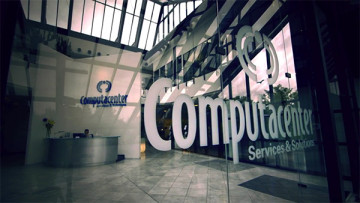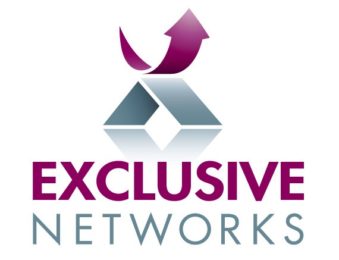 IDC has unveiled significant shifts within the technology distribution landscape, largely driven by artificial intelligence’s (AI) burgeoning influence.
IDC has unveiled significant shifts within the technology distribution landscape, largely driven by artificial intelligence’s (AI) burgeoning influence.
In its North America Distribution Tracker (NADT) report, IDC said distributor revenue for the second quarter of 2024 remained steady at $19.5 billion. However, this apparent stability belies notable changes across various product segments.
The PC sector, propelled by AI, has reclaimed its position as the leading product group, generating $3.9 billion in sales and demonstrating a robust 9.9 per cent year-over-year growth. AI-powered PCs have been instrumental in this resurgence, contributing 17.8 per cent of Q2 PC revenues and showing an impressive 33 per cent growth compared to the first quarter.
Apple and Microsoft have seen a significant boost in their PC revenues, with AI-powered models contributing 75 per cent and 32 per cent, respectively. This underscores the substantial impact of AI on major industry players.
Software sales have also experienced significant growth, reaching $3.9 billion, marking a 9.6 per cent increase year-over-year.
Leading this charge is software-defined storage controller software, which has seen a 31 per cent year-over-year growth, driven by AI support and hyperconverged infrastructure products. Network security software has similarly flourished, with a 30 per cent year-over-year increase.
Conversely, network infrastructure sales have witnessed a double-digit decline from the record highs of 2023, attributed to the clearing of previous backlogs.
IDC’s Research Vice President of Data & Analytics, Ruth Flynn said: “Market transitions to AI-centric processes will place less emphasis on network infrastructure build-out and more on developing endpoint, software, and storage cornerstones, with associated growth also expected in support frameworks and services.”
The report further highlights a 3.7 per cent year-over-year growth in enterprise infrastructure, driven by the rising demand for processing-centric workloads to accommodate AI platforms. This trend is anticipated to persist as infrastructure evolves to support AI-intensive workloads.
 Several ransomware groups have been exploiting a vulnerability in vSphere ESXi, VMware’s bare metal hypervisor.
Several ransomware groups have been exploiting a vulnerability in vSphere ESXi, VMware’s bare metal hypervisor. Software King of the World Microsoft’s recent batch of outages might be down to the large number of staff cuts that Vole has been carrying out.
Software King of the World Microsoft’s recent batch of outages might be down to the large number of staff cuts that Vole has been carrying out. Pure Storage has announced major updates to its service level agreements (SLAs) to boost customer cyber security and resilience.
Pure Storage has announced major updates to its service level agreements (SLAs) to boost customer cyber security and resilience. Schneider Electric has launched a new training programme in the UK and Ireland to address the digital skills gap.
Schneider Electric has launched a new training programme in the UK and Ireland to address the digital skills gap. Red Hat has announced significant updates to its partner programme, which it claims will provide its partners with greater simplicity, choice, and flexibility.
Red Hat has announced significant updates to its partner programme, which it claims will provide its partners with greater simplicity, choice, and flexibility. Computacenter has released a trading update which signals a decline in year-on-year sales for the first half of 2024.
Computacenter has released a trading update which signals a decline in year-on-year sales for the first half of 2024. Software King of the World Microsoft has defended itself against allegations of anti-competitive behaviour in its cloud licensing practices, accusing competitors Amazon and Google of obfuscating the issues at hand.
Software King of the World Microsoft has defended itself against allegations of anti-competitive behaviour in its cloud licensing practices, accusing competitors Amazon and Google of obfuscating the issues at hand. IDC has unveiled significant shifts within the technology distribution landscape, largely driven by artificial intelligence’s (AI) burgeoning influence.
IDC has unveiled significant shifts within the technology distribution landscape, largely driven by artificial intelligence’s (AI) burgeoning influence. Exclusive Networks’ CEO says the cybersecurity VAD enjoyed a “strong” first half of 2024, despite “continued soft market conditions”.
Exclusive Networks’ CEO says the cybersecurity VAD enjoyed a “strong” first half of 2024, despite “continued soft market conditions”. Leading distributors Westcoast and ALSO Group have announced a merger agreement and will operate under the ALSO name. The merger is awaiting regulatory approval.
Leading distributors Westcoast and ALSO Group have announced a merger agreement and will operate under the ALSO name. The merger is awaiting regulatory approval. CallTower has partnered with Tollring to offer call analytics on Microsoft Teams with Analytics 365.
CallTower has partnered with Tollring to offer call analytics on Microsoft Teams with Analytics 365. AI outfit ServiceNow has acquired Raytion to score its information retrieval technology.
AI outfit ServiceNow has acquired Raytion to score its information retrieval technology. Customers want to see more transparency when tech companies flog their products based on AI.
Customers want to see more transparency when tech companies flog their products based on AI. Israeli cloud security startup Wiz has rejected a $23 billion acquisition offer from Google.
Israeli cloud security startup Wiz has rejected a $23 billion acquisition offer from Google. The Co-op has been transforming its retail business using SAP’s Retail ECC suite on Hana software to improve stock visibility and forecasting.
The Co-op has been transforming its retail business using SAP’s Retail ECC suite on Hana software to improve stock visibility and forecasting.




